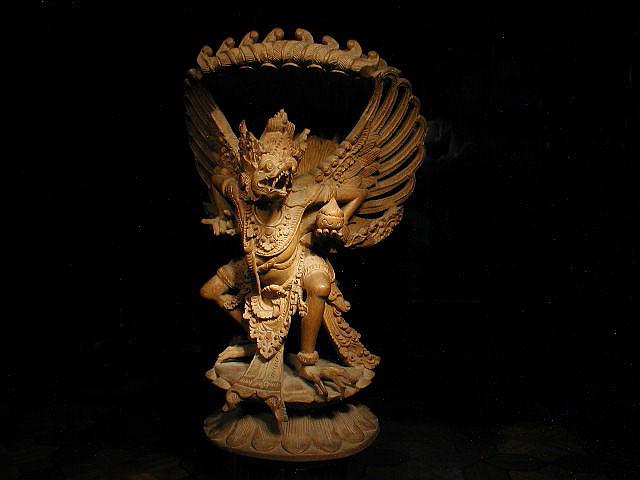
On Monday 20 October Joko Widodo (Jokowi) will be inaugurated as Indonesia’s seventh president. Australia–Indonesia relations will shift to a new and more mature plane due to differences in character between Jokowi and his predecessor, highly contested domestic politics, and Indonesia’s potential economic ascent. The certainties of the past will be shaken as a more engaged President seeks to show that a civilian can command respect as home and abroad. At the same, the Prabowo-led opposition coalition will seek to diminish his standing and achievements in the eyes of the electorate.
Despite much speculation, little is known of Jokowi’s foreign and defence policy except that he’s a pragmatist with few political debts to limit or distort his policy options. Even so, his options will be anchored by history and geopolitical realities. There’ll be no fundamental change in Indonesia’s ‘free and active’ foreign policy. And geographic imperatives will tie Indonesia’s primary focus to the region, despite inclinations in some quarters for Indonesia to take a more assertive global role. Nevertheless, within those boundaries there’s considerable scope for innovation in style and substance.
Australia’s interests in the region largely coincide with Indonesia’s; we both want to take advantage of China’s economic growth and prosperity without having China use force or the threat of force—physical or non-physical—to dictate inter-state relations or the terms of trade. Both countries also want to preserve the sovereignty of national borders while acknowledging that cooperation across them is essential for their preservation and mutual security in the broadest sense.
No civilian president since Sukarno has been a great achiever so Jokowi will want to demonstrate that he can protect and advance the national interest in a dynamic and competitive global environment. He’ll have to respond vigorously to any incursions of Indonesia’s borders or slights to its rising regional and global status both to demonstrate his competence and to neutralise his political opponents. Nevertheless, his primary focus will be on stimulating economic growth without which his standing and chance of a second term will be severely undermined.
Jokowi will have many regional and global suitors eager to take advantage of the potential economic opportunities in Indonesia or to influence its foreign policy. Australia will have to move quickly and adroitly both to preserve its current standing and cooperative endeavours and to promote its relatively small and concentrated share of investment and trade.
The Australia–Indonesia defence relationship is long standing but only one of many to engage Indonesia’s attention. Its biggest relationship is with the US but Indonesia has diversified its foreign relations to minimize the potential for its defence and security options to be dictated by external players either individually or in combination. Australia’s advantage is that it doesn’t have much leverage over Indonesian policy—but it’s here to stay and no threat to its neighbour. Consequently, there’s scope for a strong and genuine partnership unencumbered by fundamental conflicts of interest, despite the occasional friction generated by non-state actors, cross-border activities, economic competition, media criticism and terrorism.
If Jokowi can achieve his economic growth target of 7% or more, Indonesia will have the resources to deepen bilateral engagement across the range of established programs, from education to public sector reform and defence and security. As a recent article by Edward Aspinall in Strategic Review has highlighted, the only question is whether Jokowi will succeed in implementing the fundamental reforms needed if Indonesia is to maximise its economic potential, given the destructive opposition that an attack on endemic corruption and rent-seeking will inevitably incite?
Meanwhile, Australia should concentrate on establishing personal relationships across the new administration without being too pushy. The aim should be to seek support for existing cooperative measures and activities and to offer to adapt those to the Jokowi government’ priorities. We could also offer to assist in areas that might be of greater priority to the new administration.
For example, Jokowi has already expressed great interest in making better use of Indonesia’s maritime endowment for transport and resource exploitation as well as stopping its unauthorised exploitation by domestic and foreign actors. That will require improved surveillance and reconnaissance, the capacity to intercept suspected interlopers and basic research about the nature of resources found in the maritime domain. Australia has skills and capabilities in both the public and private sectors in all those areas which could be engaged to the advantage of both countries. Likewise, Indonesia’s aerospace domain is also being revolutionised by both dramatic increases in air transport and the use of space for communications, and mapping and surveillance. Australia again has expertise and capabilities in those areas and they could be employed for the benefit of both parties.
There are many other common security interests where Australia and Indonesia could cooperate, from the resolution of border disputes to counter-terrorism. But the key is to identify and prioritise those areas of common interest and to seek a genuine long-term partnership—one that’ll endure the normal ups and downs of neighbourly relations and the stresses engendered by the demands and priorities of the big powers.
Bob Lowry is an adjunct lecturer at the UNSW Canberra, Australian Defence Force Academy. Image courtesy of Flickr user Yamanaka Tamaki.